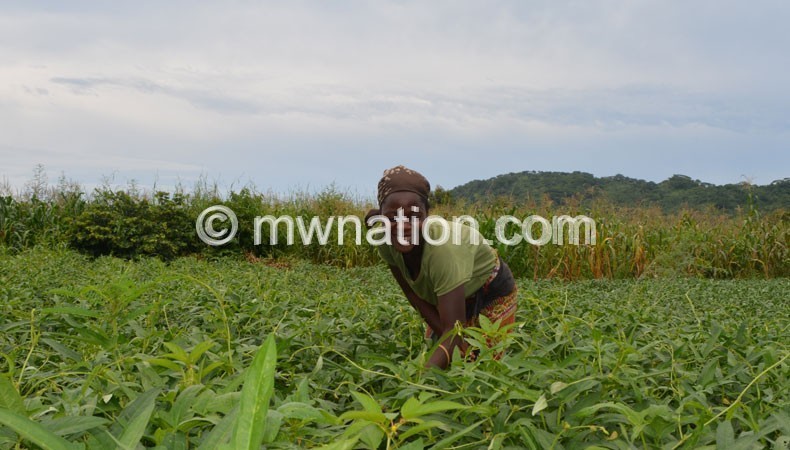Agriculture programmes to empower women—Shawa
The gender, climate change and agriculture programme can empower rural women to better cope with potential adverse impacts of climate change, says Mary Shawa Principal Secretary in the Ministry of Gender, Children and Social Welfare.
Opening a workshop that her ministry is hosting in conjunction with the New Partnership for African Development (Nepad) agency in Lilongwe on Tuesday, Shawa said women, youth and the disabled are affected because of changes in the environment.

“Our natural resources are being affected negatively and life is not the same as some decades passed. In olden days, we could determine when rains are coming throughout the Malawi seasons.
“These days rains come when we do not need them and when we plant our crops, dry spells abound and women are the more affected,” said Shawa making a call to the workshop to discuss practical solutions to gender, smart agriculture and climate change.
Norwegian Ambassador to Malawi AsbjØrn Eidhammer said climate change and what to do about it represents a major challenge for the African agriculture sector.
“Research institutions, NGOs, private sector and the media presents us with many solutions. Irrigation to end dependence on rainfall, conservation agriculture, agro-forestry and the application of manure to improve soil fertility, soil structure and moisture retention, crop diversification to reduce vulnerability allow farmers to stand on more legs.
“Common to these technologies solutions is the dependence on farmers’ skills and knowledge. We must invest more in the farmers for climate adaptation in agriculture to work,” he said.
In her remarks, Nepad Planning and Coordinating Agency (NPCA) acting programmes officer Edna Kalima said women in the continent are heavily engaged in the sector both in farming and livestock production hence need to help them by finding measures to address climate change impacts.
“The bulk of African agriculture is traditional and rain fed and highly vulnerable to climate-induced shocks such as extreme weather events that has resulted in adverse and disproportionate impacts on the vulnerable groups in the society especially on women smallholder farmers and pastoralists.
“It has become crucial to examine the gender-agriculture-climate change dynamics in the African context so as to design appropriate interventions, not only to curb the looming adverse impacts of climate change on smallholder farmers, but also to increase productivity and ultimately improve their livelihood,” she said.
The workshop is under NPCA five year programme on Gender, Climate Change and Agriculture Support Programme (GCCASP) with funding from the Norwegian government.




